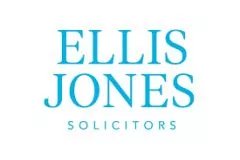Our Healthcare Team have a passion to support care providers in running efficient and compliant businesses. A particular issue that many care providers face is the prospect of having to challenge the accuracy and completeness of CQC inspection reports.
What is the factual accuracy process?
After an inspection by CQC, a report will be prepared and sent to the provider to check the factual accuracy and completeness of the information that CQC have used to reach their judgements and ratings of the service. The factual accuracy challenge allows providers to notify CQC of the following:
- Typographical or numerical errors;
- Information that has contributed to a judgement, but which the provider believes is factually inaccurate; and
- Additional or omitted information that the provider thinks should be considered.
The purpose of the factual accuracy process is to give inspectors and providers the opportunity to ensure that they see and consider all relevant information that will form the basis of CQC's judgements.
Providers are generally given 10 working days from the date that they receive the draft report from CQC to submit their factual accuracy challenge and any additional evidence in support, which must have been available to inspectors on the day of the inspection. Providers can also submit evidence that shows action taken since the inspection, but unless there are exceptional circumstances this will not normally lead to a change in CQC's final ratings.
Extensions of time will only usually be granted in exceptional circumstances and so, if providers require advice on the contents of a draft report, it is important that they seek that advice swiftly.
Why is it important to submit a factual accuracy challenge?
It is also worth bearing in mind that, if a provider does not challenge a draft report, CQC will presume that the contents of the published report are completely accurate. If CQC were to later take any enforcement action against the provider, the fact that the provider has not challenged inspection findings in draft reports can make it more difficult for the provider to then dispute that enforcement action. If a provider is not completely satisfied with a draft report, it is therefore important to submit a factual accuracy challenge and to have those on record.
The content of this article is intended to provide a general guide to the subject matter. Specialist advice should be sought about your specific circumstances.
[View Source]

